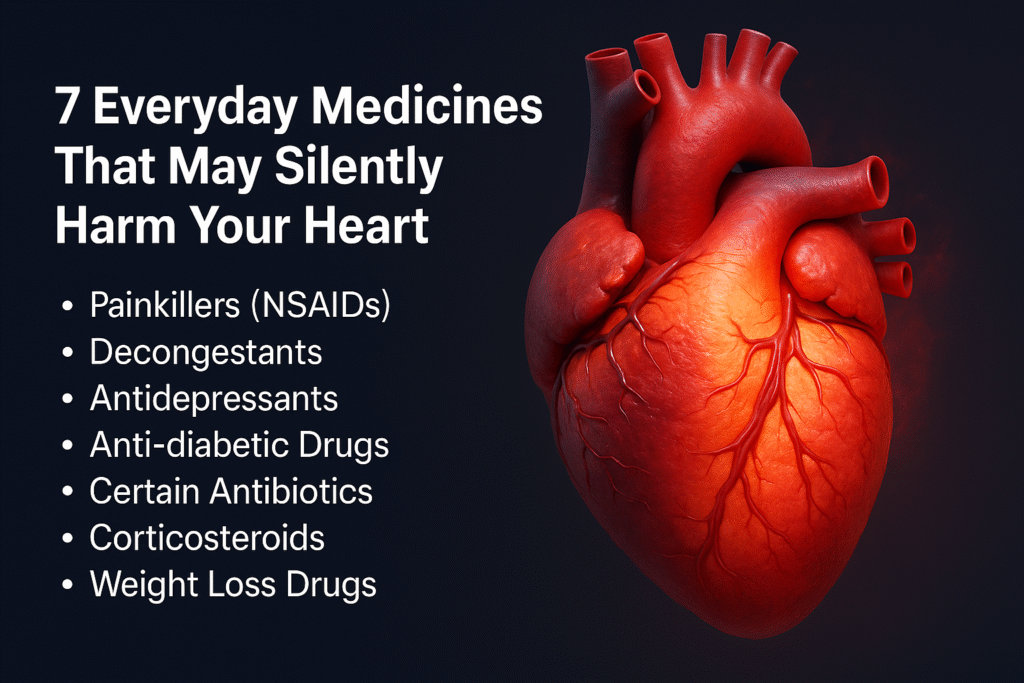Your heart beats over 100,000 times a day, powering your entire life. But even if you eat healthy and stay active, hidden dangers may be closer than you think. According to renowned heart surgeon Dr. Swarup Swaraj Pal, seven common medicines—from painkillers to cold remedies—could silently harm your heart when misused or taken long-term.
Here’s what every health-conscious professional should know:
1. Painkillers (NSAIDs):
Ibuprofen, diclofenac, and similar drugs may raise blood pressure and the risk of heart attack—sometimes in as little as one week of use.
2. Decongestants:
Popular in cold and flu meds, these can constrict blood vessels and dangerously raise heart rate, especially in people with hypertension.
3. Antidepressants:
Some, like amitriptyline or fluoxetine, may disrupt heart rhythm. Always consult your doctor if you have a heart condition.
4. Anti-diabetic Drugs:
Medications like pioglitazone can cause fluid retention, which may lead to heart failure in vulnerable patients.
5. Certain Antibiotics:
Azithromycin and clarithromycin may trigger irregular heartbeats, particularly when taken with other heart-sensitive meds.
6. Corticosteroids:
Often prescribed for asthma or arthritis, steroids can increase blood pressure and strain your heart.
7. Weight Loss Medications:
Some appetite suppressants are notorious for spiking blood pressure and stimulating the heart, sometimes leading to serious complications.
What’s the takeaway?
** Never ignore side effects.
** Discuss your full medication list with your doctor—especially if you have or are at risk for heart disease.
**Prioritize heart check-ups if you’re on long-term meds.
Your heart is irreplaceable. Sometimes, safeguarding it means asking just one more question before popping that pill.
Stay proactive. Share this post—your network’s heart health could depend on it. ❤️
#HeartHealth #Cardiology #MedicineSafety #HeartAwareness #PreventiveHealth #LinkedInHealth #WellnessWednesday #HealthEducation

